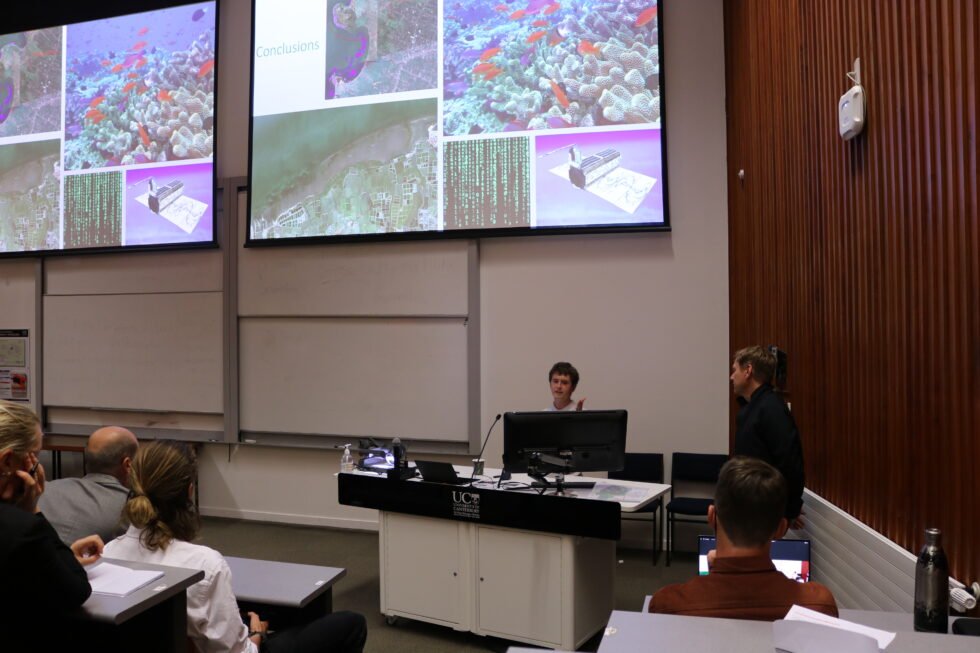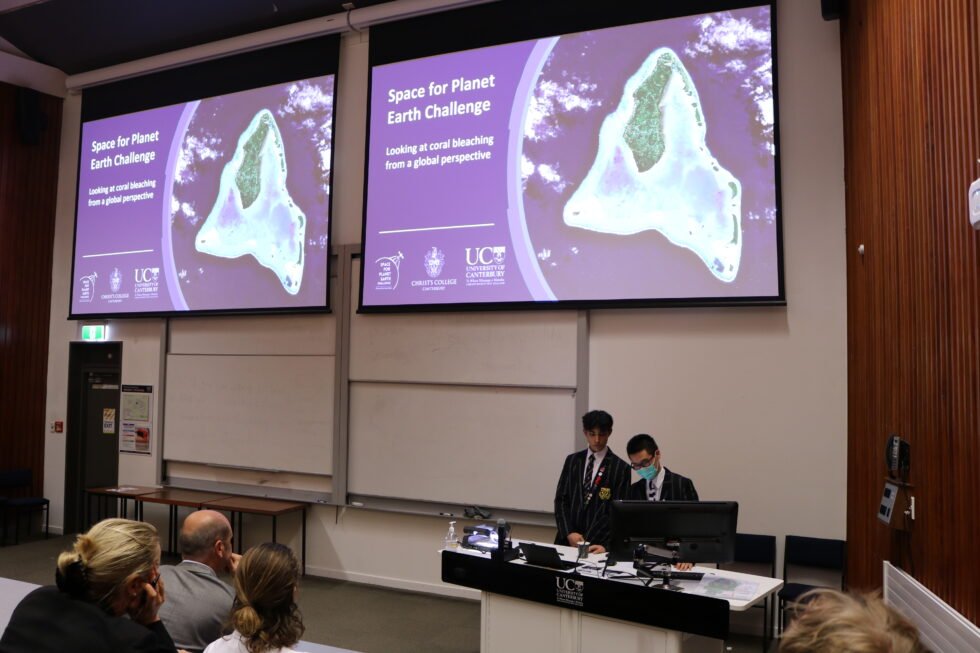Meet Up #23 Ethics Beyond Our Planet
Our return to in-person Meet Ups was an excellent evening! Our speakers presented us with fascinating presentations on ‘Ethics Beyond Our Planet’, and it was fantastic to network with our aerospace community in person once again.
A special thank you to the University of Canterbury for hosting us and sponsoring the event.
Clear Skies in the Era of Satellite Megaconstellations
Dr. Michele Bannister, Planetary Scientist, Senior Lecturer, University of Canterbury
The advent of the build-out of massive satellite constellations is unpacking a broad range of issues around access and operation in near-Earth space. Fortunately, enthusiastic efforts are bringing together industry and academics around the world to consider the mitigation of visual and radio pollution associated with satellite constellations.
Space for Planet Earth Challenge – Leveraging Space For Climate Change
Emeline Paat-Dahlstrom, CEO and Co-Founder, SpaceBase Limited
SpaceBase gave a short recap of the Space for Planet Earth Challenge competition results – using satellite data to address climate change issues focusing on carbon sequestration and coral health. Two finalists, high school teams from Christchurch presented their machine learning and cloud- based solutions. Cashmere High Space Club talked about how shrimp farms are likely affecting coral health globally. Christ College presented their platform focused on predicting coral bleaching.
Norm Setting In The New Space Era – The Role Of Government
Mike Asplet, Team Leader Policy, New Zealand Space Agency, MBIE
Over the past two decades there has been a rapid increase in civilian and commercial entities making use of outer space. This growing international interest in space poses challenges for establishing norms to manage the risks and benefits of space activities. This presentation discussed the ways in which government influences the development of theses norms at both the international and domestic levels.
Global Space Ethics And Planetary Defense
Dr. Evie Kendal, Lecturer, Health Promotion, Swinburne University of Technology
Human interactions with space and celestial objects have previously been limited by what we can do, rather than what we should do. So-called ‘space races’ have often shown little consideration of the long-term ethical impacts of space exploration, or the potential dual-use dilemmas that the associated advancements in science and technology represent for global security. It has become apparent in recent times that increased human activity in space poses various legal challenges, leading to a drive to progress the field of space law. In this talk, Dr. Kendal discussed the similar need to codify global space ethics review processes and suggest some possible methods for monitoring and evaluation in this area.
The New Aerospace Eng Minor Programme at the University of Canterbury
Dr Natalia Kabaliuk, Department of Department of Mechanical Engineering, University of Canterbury | Te Whare Wānanga o Waitaha
The new Minor in Aerospace Engineering as part of the BE(Hons) Mechanical Engineering degree at the University of Canterbury will provide aspiring students an enhanced pathway into the rapidly developing aerospace industry in Aotearoa New Zealand and especially Ōtautahi Christchurch. UC offers the only undergraduate Aerospace degree in Aotearoa, giving students early entry into the industry or towards further study at the postgraduate level. This talk will provide a brief overview of the structure of the Minor.





